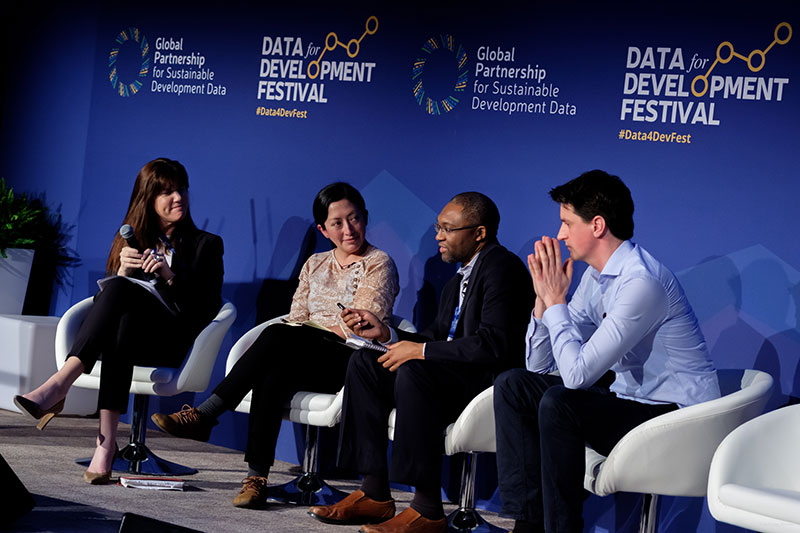Southern Voice's efforts in filling data gaps to “deliver the SDGs and leave no one behind”, have been recognised as…

On 21-23 March, Southern Voice was present at the Data for Development Festival in Bristol. It was a space of collaboration between the development and the global data communities to reflect on the role of data in the 2030 Agenda that will continue in the next World Data Forum.
One of the main takeaways is that disaggregation of information is powerful and can show who has been left behind. Even though fulfilling the principle of Leave No One Behind is challenging, data can help make the invisible, visible. Data give people a voice and empowers them to claim for their needs and rights. But to fulfil this potential, data needs to be easily accessible and useful.
The data revolution needs capacity building and knowledge-sharing. National Statistics Offices play a crucial role in data production, but other actors, like the private sector, academia, and civil society organizations are increasingly getting involved. This calls for new governance arrangements, which includes thinking about principles and standards. For example, there is significant innovation in terms of new technologies to gather data, but limited or no standards to use them. Using standards can help stakeholders publish data consistently, and it also leads to better quality data and encourages collaboration. This last feature is particularly relevant and applicable to the SDGs.
The way data is communicated matters. When it is delivered through stories, data can reach decision-makers and most importantly it can support better decisions. As it was also highlighted during the Paris 21 event Truth in numbers in Bern, people are curious, and the best way to catch people’s attention is by presenting powerful stories. Humans like to hear about themselves. Presenting data that is somehow related to the audience can facilitate raising awareness about an issue, and potentially catalyse collaboration.
Southern Voice was honoured to be one of the partners of this event and remains a proud member of the Global Partnership for Sustainable Development Data.

